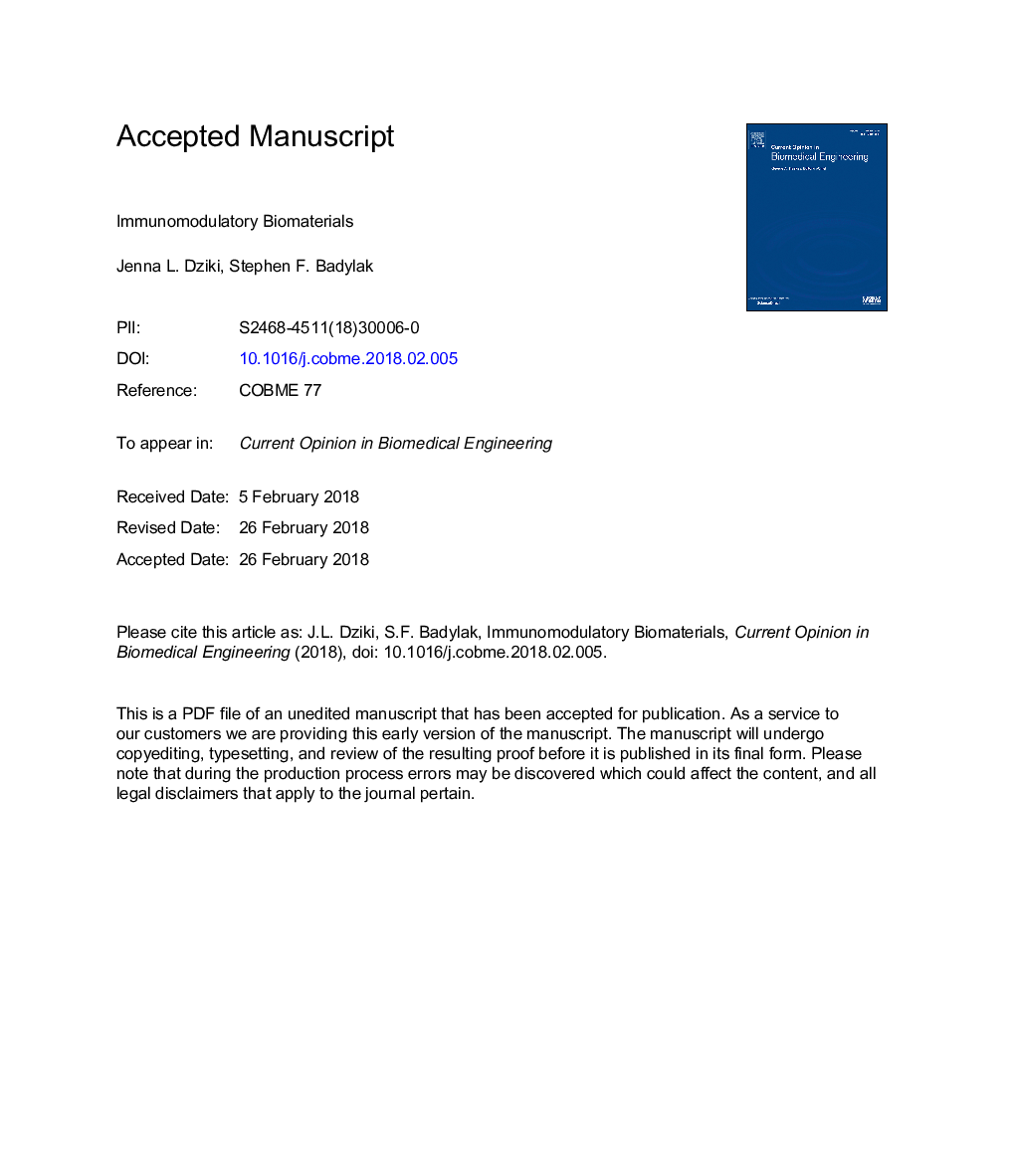| Article ID | Journal | Published Year | Pages | File Type |
|---|---|---|---|---|
| 8918942 | Current Opinion in Biomedical Engineering | 2018 | 21 Pages |
Abstract
The immune system has long been recognized to play a critical role in the host defense against pathogens, foreign bodies, and the tissue healing response following injury. More recently, necessary and essential participation of immune cells in development, tissue and organ homeostasis, aging, and degenerative diseases has been recognized. By definition, biomaterials are foreign bodies. The design and manufacturing of biomaterials has largely been based upon mechanical and physical properties including strength, porosity, degradability, and surface characteristics. More recently, it has been recognized that the most important determinant of successful clinical outcomes is the host response to the biomaterial, i.e. the immune-mediated tissue reaction to the presence of the foreign body. The term “inert” was once used to describe desirable biomaterial characteristics, however it is now apparent that the encapsulation of biomaterials with fibrous tissue itself represents an immune-mediated tissue response. Herein we review developments in strategies to proactively modulate the immune response. Special attention is given to naturally occurring extracellular matrix-based materials and novel strategies to mimic the ability of ECM to promote pro-regenerative immune cell phenotypes that support constructive tissue remodeling.
Related Topics
Physical Sciences and Engineering
Engineering
Biomedical Engineering
Authors
Jenna L. Dziki, Stephen F. Badylak,
